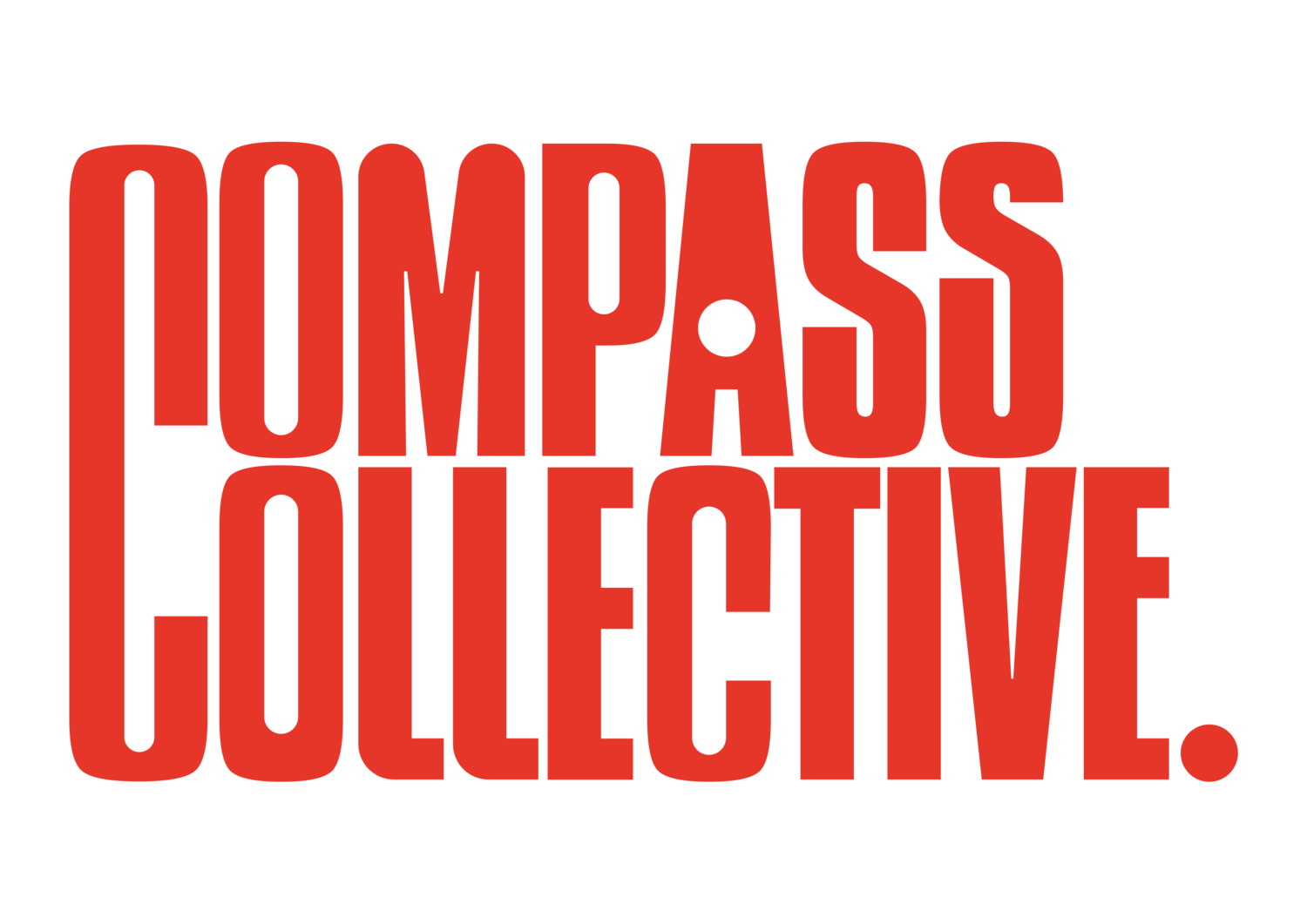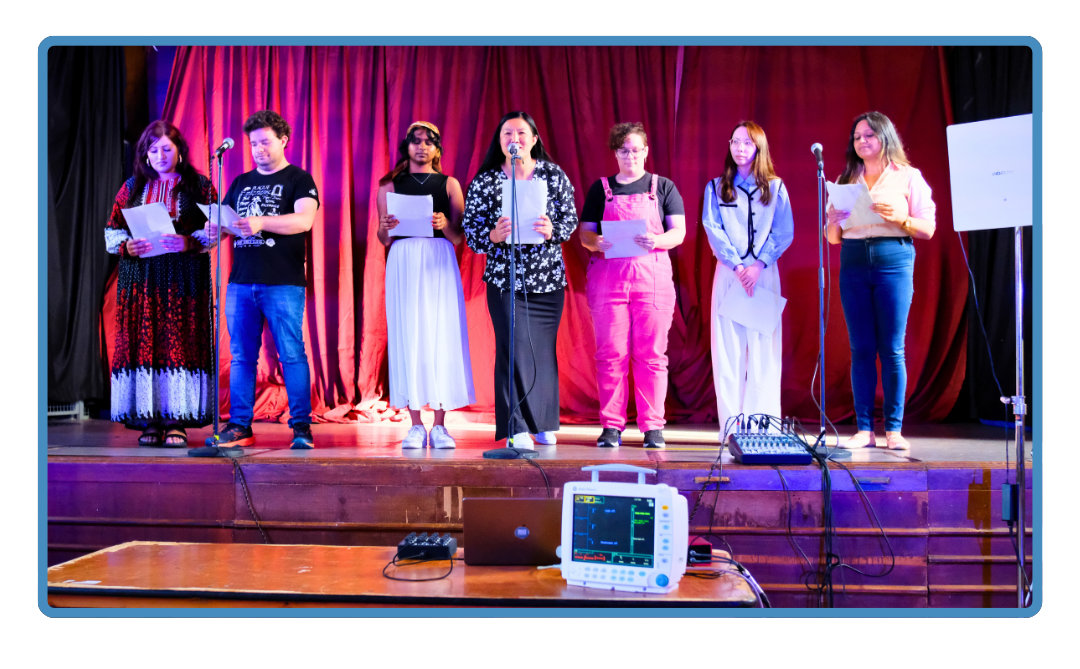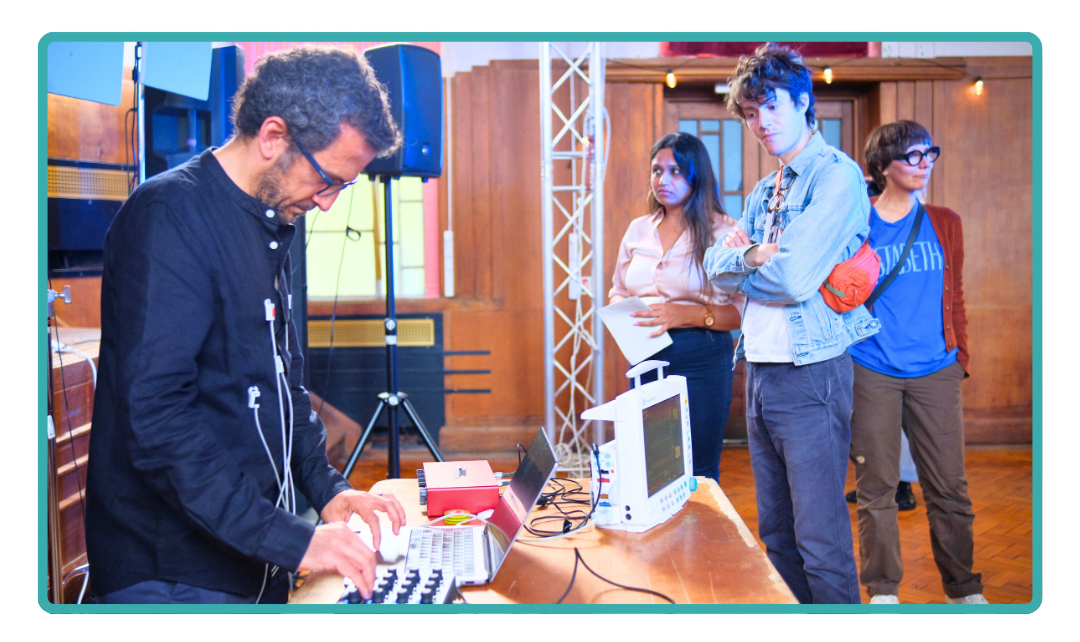VOICE NOTES - NEW MUSIC BIENNIAL 2025
This summer, Voice Notes came to life on stage as part of the PRS New Music Biennial. In collaboration with New Writing North’s multilingual group, World Writes, the evening wove together powerful performances, readings by World Writes writers alongside immersive sound artwork by Hardi Kurda, built from voice messages shared by refugees and migrants around the world.
Read below for reflections from Mymona, who leads World Writes:
Image Credit: Maria Maza
“Written by Mymona Bibi
The Voice Notes project with World Writes was the kind of project that cemented people to each other and a place which felt necessary in the current context of the fight to secure migration rights in the UK. World Writes is a multilingual creative programme that I set up in 2023 with New Writing North as part of their West End Writes community programme. This was to give people who speak English as a second language an exclusive space to explore and develop their creative practices. We meet weekly to develop writing and storytelling in different languages often focusing on the social inequalities within multilingual experiences. The Voice Notes project was brought to World Writes by Sarah Jackson in June and July of 2025.
The Voice Notes project fit perfectly within the World Writes programme because the group started asking questions about hierarchies and powers of languages across the world. The project included exploring how the sounds of languages and how different mediums affect our experience of languages and the world, too. At this time, we had just completed an international publication project. This publication was all about how we express ourselves on the page in different languages, and so Voice Notes felt like a perfect follow-up to the publication.
Sarah supported me and the World Writes group to think about our voices and how we use voice notes. We all wrote individual voice notes that were then recorded by Hardi Kurda and used in a collaborative audio installation. The exploration of the voice within the group brought up a lot of discussion around the different ways we speak different languages and in different contexts. For example, many people felt a language was more suitable for them to use in a work context, but perhaps not in a domestic context and vice versa. These nuances were shared amongst many people from different backgrounds and supported us to create a seamless, collaborative piece.
As a facilitator and writer alongside Sarah Jackson, I felt a great sense of community in the way we took part in communal storytelling. We told our stories to each other in various languages, including English, Arabic, Kurdish, Sylheti, Nepalese and Portuguese. When we told our stories and read our voice notes, we listened carefully to each other's voices, looked for meaning and respected the different flows in different mother tongues. Therefore, the Voice Notes project was not just about writing and storytelling but also crucially about listening. As a result, the World Writes group forged stronger bonds by engaging with each other’s languages, thereby increasing our commitment to each other, our work, our collective projects and ourselves.
At the end of the project, with the help of Jamie and Leah from Compass Collective, Sarah Jackson, and the John Marley Centre, World Writes was able to create a collaborative five-part piece of writing that merged our voice notes in our various languages. We read this creation out to an audience who attended our open event on the 14th of July to showcase our voices and our collective identity. For a lot of the group, it was their first time reading aloud to an audience, but as we had worked collaboratively, read collaboratively and had spent many days writing together and listening to each other, it felt right.
Many aspects of this project inspired me to rethink my own writing, reframe my own linguistic experiences and approach World Writes in new ways. One of the aspects I really appreciated was how the creation of voice notes - as opposed to poems, stories or other forms of writing - meant that the powers of literacy were not so much at play. This means that how literate you are usually affects how able you are to access and engage with a story or an opportunity to tell a story. Often, multilingual creatives are required to only really create in one or one main language, which can hinder the expressions that live beyond those linguistic barriers. So, we needed to get to see much more of each other and each other’s stories that don’t typically find themselves on the page without an audible voice.
Within this focus on oral storytelling, we were also encouraged to consider that which is left unsaid. There were new possibilities that don’t necessarily come to the surface when we are writing in other forms. By using the medium of a voice note, we thought about who we would send our voices to. For example, some participants said they wouldn’t send a voice note to a friend as they were only used to sending them to their families or partners. So, if we sent a voice note to someone who might not expect it, might we also say something unexpected? Would we begin conversations we otherwise felt uncomfortable about? Would we share deeper feelings? Would we share secrets in another language too?




